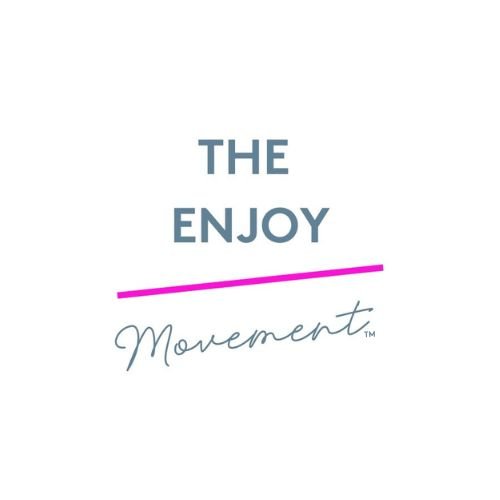Why I Became A Personal Trainer
My reasons behind becoming a Personal trainer have really guided how I work with people, what I’m passionate about and why I founded The Enjoy Movement.
I strongly believe there is room for more diverse messages around fitness, rather than the ones that currently dominate the industry.
I have always been active and outdoorsy. I spent years as a teenager working with horses, never deterred by freezing cold weather or hard physical work. I now have a love of being outside in nature, whatever the weather and moving my body.
I started running in my early twenties and dabbled with the gym and classes. My memories of the gym are of intimidating, unsociable places. I attended classes where I felt uncomfortable. I didn’t know what I was doing, don’t recall anyone ever being particularly kind or helpful and this made me feel embarrassed and vulnerable. Thankfully, with the huge rise and diversity of fitness spaces and classes, I don’t think it’s as bad these days. Although I am 100% sure that many people still experience those feelings of intimidation, embarrassment and fear when entering any exercise space, as I did twenty years ago. I believe that this is one of the reasons why so many people are inactive and say the hate exercise.
After I had children, I met a really inspiring personal trainer and through her circuit classes I experienced an inclusive community of women that made exercise fun and sociable. I was looking for a career change and knew that I wanted to do something where I could help other people feel good. I had a lightbulb moment when I realised I could become a personal trainer myself and fulfil this need whilst also satisfying my desire to get out of an office and be active and outdoors.
I trained as a personal trainer in 2010. But from the start I felt like I didn’t fit in. I was generally the oldest in the room and everyone else seemed obsessed with protein shakes and working out has hard as possible in the gym, to look as hot as possible. It was very competitive. This made me feel like an imposter, this wasn’t where I got my exercise pleasure or motivation from and I felt like a rubbish PT compared to them.
I questioned myself a lot, and felt a fraud, as I never felt I looked or acted like a ‘Personal Trainer’. It’s taken me a long time to recognise that this is ok and understand that this is where my strength lies.
We have all seen advertising trying to guilt shame us in to 21 day body transformations, bikini bodies or similar and I think we probably all know strategies such as these don’t help you make sustainable change. More worrying, I think, is the negative impact this kind of behaviour has on our self-esteem. It feeds our insecurities and reinforces the prevailing message that exercise is primarly a weight management tool.
I want to create inclusive and welcoming communities where women can focus on the positive impact exercise has on our bodies and minds. To offer an alternative so that those women who feel rejected by the traditional fitness industry have a place to enjoy movement. I want to spread the word that there are a huge variety of ways to ‘exercise’ and enjoy movement.
Since qualifying as a personal trainer I have had a really privileged insight into women and their relationship with exercise. It has shaped how I approach my work and led to the creation of The Enjoy Movement.
I don’t believe in fad diets and anything that makes you restrict and obsess about food. This includes detoxes, juice cleanses, supplements, no carb diets and food group restrictions. I do recognise though that if you are in this mindset, it’s extremely difficult to change. I have been there myself. It’s often created over a lifetime and is reinforced by society.
The exercise and food binge/restrict cycle doesn’t create a sustainable and positive relationship with exercise; seriously complicates our relationship with food and loses sight of all the wonderfully positive benefits exercise and great food give us. The benefits of exercise go far deeper than weight loss and looking ‘good’.
Exercise can energise us, improve our mood, make us strong, keep us healthy, improve our self esteem and so much more. These are all intrinsic reasons to move. If we can move away from fat loss as the primary motivator for exerise and extrinsic reasons such as socieies perception of the perfect body, we will be able to build a much more positive relationship with exercise.
The narrative in the fitness industry (and society) needs to change so that we can recognise this and place as much value on embracing exercise for these intrinsic motivators. I founded the The Enjoy Movement in an attempt to be a part of this change.
Join #theenjoymovement and let’s embrace moving because it makes us feel good.
